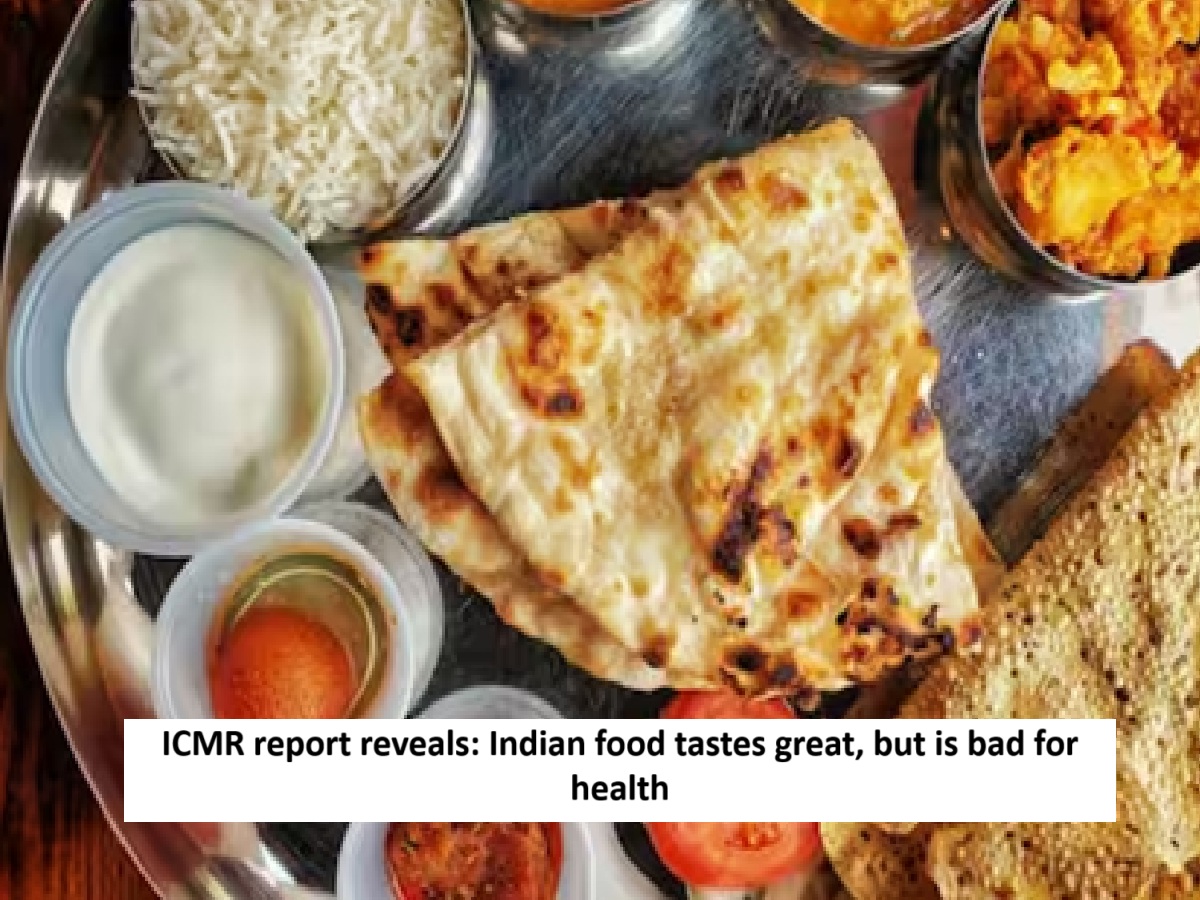
News Topical, Digital Desk : Indian food is renowned worldwide for its delicious taste. However, a new report by the Indian Council of Medical Research has revealed the health risks behind this deliciousness. According to the report, Indian diets are high in carbohydrates and low in protein, leading to a rapid increase in obesity, diabetes, and muscle weakness in the country.
What did the ICMR report reveal?
This research, conducted by the ICMR and the National Institute of Nutrition, analyzed the diets of Indians. The report revealed that 65 to 70 percent of Indian food consists of carbohydrates, while protein accounts for only 10 percent. This means that people fill their stomachs but their bodies lack the necessary nutrition. According to the report, carbohydrate-rich foods like rice, roti, and potatoes are the most commonly consumed foods in the Indian diet. According to the ICMR, excessive consumption of these foods increases sugar levels and accumulates fat, leading to weight gain, fatigue, and diabetes.
Protein deficiency is weakening Indians' bodies.
According to this report, a person needs about 60 grams of protein daily, but most Indians only consume 35 to 40 grams of protein from their diet. Proteins like pulses, milk, eggs, and soy are almost absent from the Indian diet, affecting immunity and muscle strength. According to ICMR research, people in South India rely on rice, while those in North India consume more wheat. While fish and coconut provide some good protein in the Northeast and coastal areas, overall, a lack of balance in the diet across the country has been found. ICMR. CMR has advised people to immediately improve their diet. According to the report, if people do not include protein and healthy fats along with grains in their diet, diseases may increase in the future. This ICMR report also suggests that it is important to maintain a balance of 25 percent protein, 50 percent carbs, and 25 percent healthy fats in the diet. In such a situation, you can include pulses, milk, eggs, curd, soya and vegetables in your daily plate.
--Advertisement--

 Share
Share



